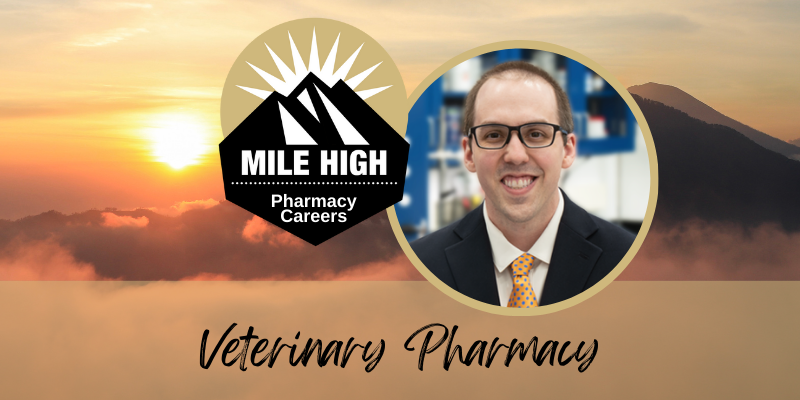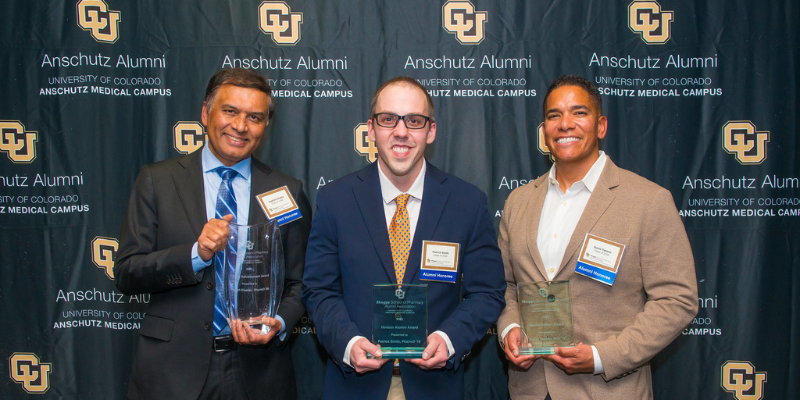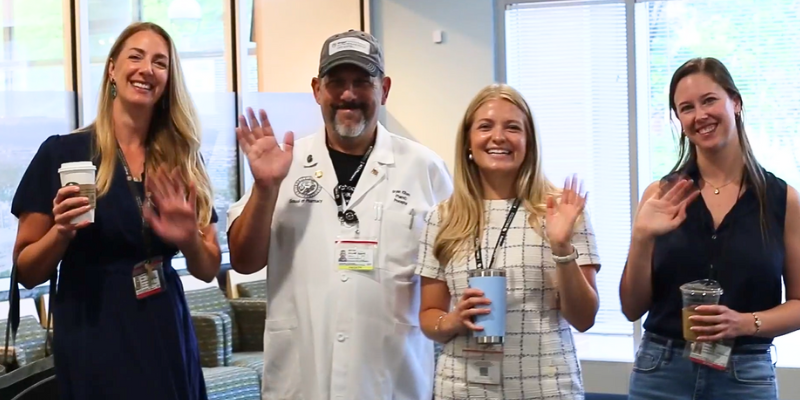Stanislava Manojlovic poses for a photo with her nephew, Maksim Morris, May 24 after the 2019 Commencement Ceremony.
Stanislava Manojlovic’s dreams of becoming a pharmacist started when her mother was injured while tending to sheep in her home country of Serbia. Her family didn’t have any other access to medical care, and her mother’s ankle, cut by a leash, was starting to get infected.
So Manojlovic’s neighbor, a pharmacist, cared for her mother until she was healed.
From that point on, Manojlovic dreamed of one day entering the field herself. She even used her grandparents’ old prescription bottles to play pretend pharmacist with her sister at home.
But for a long time, that dream of actually becoming a pharmacist seemed out of reach. Manojlovic and her family were refugees in Serbia for eight years before moving to the U.S. When they finally moved, they lived as refugees for another six years. They only had $100 to their name and needed to learn the basics, from using a credit card to speaking English.
“I never believed I could do pharmacy in the U.S.,” Manojlovic said. “I never thought it was something that would be possible for me.”
That all changed during the spring 2019 commencement ceremony May 24 on the CU Anschutz Medical Campus, where Manojlovic earned her PharmD. Manojlovic, the first person in her family to obtain a college degree, surpassed her own expectations when she earned her doctor of pharmacy degree from the Skaggs School of Pharmacy and Pharmaceutical Sciences.
“I can’t wrap my mind around it,” she said. “It’s surreal.”
Born in Bosnia and Herzegovina, Manojlovic moved to Croatia when she was 3 years old. But starting in March 1991, the Yugoslav Wars left her without a home to go back to.
When the war was over, her family moved to Serbia, where they lived for eight years as refugees. Her life left her with little opportunity to pursue higher education: It wasn’t possible for her family to move to Belgrade, the closest major city, to take classes.
“I always wanted to be a pharmacist,” she said. “But in Serbia, I couldn’t even think of that.”
Her parents tried three times to move to the U.S. before finally getting approval.
After they moved, Manojlovic knew she wanted to pursue higher education. So she applied to CU Boulder, and in 2012, earned her biology degree.
Even after earning her degree, though, a career in pharmacy seemed impossible.
“I was lost for a long time,” she said. “I didn’t believe it would happen.”
But with her dream in the back of her mind, Manojlovic started from scratch, taking classes to become a pharmacy technician. Seven years after earning her first degree, Manojlovic overcame her doubts. Now, she is sure about her career, especially because of her ability to empathize with patients.
After graduation, Manojlovic accepted a position as a staff pharmacist in the outpatient pharmacy at Tsehootsooi Medical Center in Fort Defiance, Arizona, a part of the Navajo population. The new position will give her several training opportunities, including inpatient pharmacy. All of the pharmacists run clinics within the hospital, working with patients who have diabetes, anticoagulation, hypertension, smoking cessation and pediatrics.
In pharmacy school, her dream was to work with underserved populations. Now, she will be serving the Native American community.
“There is a lack of empathy and understanding in today’s medical world towards those who don’t speak English or are illiterate, and/or do not have strong financial background,” she said. “What I considered to be a disadvantage for most of my life (being a refugee, losing my home and my country, English as a second language) I consider advantages now because of my ability to form that bond and sincerely understand and emphasize with those in need.”
She added: “I’ve always wanted to work with underserved patient population, and I got so lucky to have my career head in that direction right away,” she said. “I feel so blessed with this job opportunity. God is Great!”



